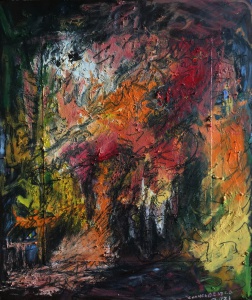Published 2023-12-23
Keywords
- Judaism,
- revelation,
- Modernity,
- Hegel,
- Freud
- Strauss ...More
How to Cite
Abstract
This paper intends to thoroughly analyze two modern and one anti-modern positions on Judaism: the one of Hegel in his Early Writings, the one of Freud in his famous work entitled Moises and Monotheism, and finally some of Leo Strauss’s considerations on “the problem of Judaism.” The intention of contrasting these three authors is to pose firstly, the modern and culminant version regarding Judaism as a primitive, abstract, and totalitarian state of the relation between man and God. Freud’s psychoanalytic considerations are proposed as a “scientific” and explicitly atheist complement of what Hegel had already posed in a strictly philosophical context; in this sense, Freud will manifest some of the presuppositions shared with Modernity (and with Hegel as its climax) which Strauss will severely criticize. The third section dedicated to Strauss will finally show then a posture that takes seriously the possibility of revelation and its irrefutability before modern critiques, as well as the impossibility of the Hegelian synthesis between God and man.

